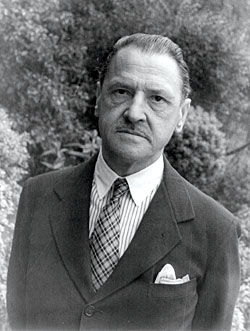 |
In the 1970s, the St. Xavier's Godavari School library prominently displayed books by physician-turned writer AJ Cronin. But I can't recall if the works of William Somerset Maugham (1874-1965), another physician-turned writer, were even at the library. In a recent comprehensive and fascinating biography entitled The Secret Lives of Somerset Maugham, Selina Hastings traces the life of this acclaimed story-teller who actually started off as a physician.
Maugham studied medicine at St Thomas's Hospital in London. A diligent student, he easily qualified as a member of the Royal College of Surgeons and licentiate of the Royal College of Physicians, London, in 1897. Somerset Maugham's first novel, Liza of Lambeth, written during his final year of medical school, draws from his experiences in treating patients from the Lambeth slums of London.
"I spent five years at St Thomas's Hospital. I was an unsatisfactory medical student, for my heart was not in it. I wanted, I had always wanted, to be a writer, and in the evening, after my tea, I wrote and read," Maugham says in his memoirs, Looking Back. And what he created has enthralled us over the years. He wrote about eccentric characters in colonial outposts in southeast Asia, and the hypocritical upper class in England in memorable classics such as Of Human Bondage, The Painted Veil, and The Razor's Edge in addition to captivating collections of short stories and screenplays. At one time he had four productions running simultaneously in London's West End.
Maugham was an amazingly observant human being, a talent he put to good use as a dramatist, novel, and short story writer. This gift would have been very handy had he continued his career as a physician. Traces of his short-lived career as a doctor can be found in some of his stories, like the one about the baffled psychiatrist, Dr Audlin, whose patient cannot separate his dreams from reality.
"They taught me pretty well all I know about human nature," says Maugham, who did not regret having studied medicine. "People in pain, people in fear of death, do not try to hide anything from their doctor, and if they do he can generally guess what they are hiding."


